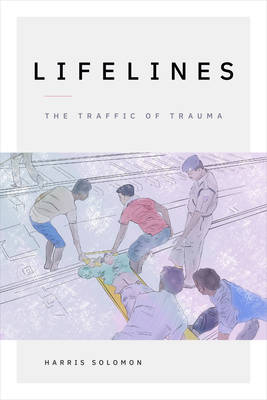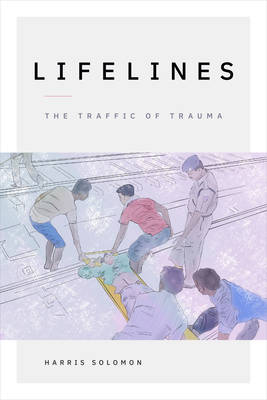
Door een staking bij bpost kan je online bestelling op dit moment iets langer onderweg zijn dan voorzien. Dringend iets nodig? Onze winkels ontvangen jou met open armen!
- Afhalen na 1 uur in een winkel met voorraad
- Gratis thuislevering in België vanaf € 30
- Ruim aanbod met 7 miljoen producten
Door een staking bij bpost kan je online bestelling op dit moment iets langer onderweg zijn dan voorzien. Dringend iets nodig? Onze winkels ontvangen jou met open armen!
- Afhalen na 1 uur in een winkel met voorraad
- Gratis thuislevering in België vanaf € 30
- Ruim aanbod met 7 miljoen producten
Zoeken
Omschrijving
In Lifelines Harris Solomon takes readers into the trauma ward of one of Mumbai's busiest public hospitals, narrating the stories of the patients, providers, and families who experience and care for traumatic injuries due to widespread traffic accidents. He traces trauma's moves after the accident: from scenes of road and railway injuries to ambulance interiors; through emergency triage, surgery, and intensive care; and from the morgue for patients who do not survive into the homes of those who do. These pathways reveal how trauma shifts inequalities, infrastructures, and institutions through the lives and labors of clinical spaces. Solomon contends that medicine itself must be understood in terms of lifelines: patterns of embodied movement that determine survival. In reflecting on the centrality of traffic to life, Lifelines explores a fundamental question: How does medicine move us?
Specificaties
Betrokkenen
- Auteur(s):
- Uitgeverij:
Inhoud
- Aantal bladzijden:
- 304
- Taal:
- Engels
Eigenschappen
- Productcode (EAN):
- 9781478018858
- Verschijningsdatum:
- 23/09/2022
- Uitvoering:
- Paperback
- Formaat:
- Trade paperback (VS)
- Afmetingen:
- 152 mm x 229 mm
- Gewicht:
- 408 g

Alleen bij Standaard Boekhandel
+ 76 punten op je klantenkaart van Standaard Boekhandel
Beoordelingen
We publiceren alleen reviews die voldoen aan de voorwaarden voor reviews. Bekijk onze voorwaarden voor reviews.











